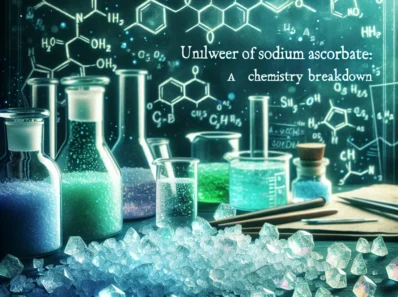Understanding the Difference: Organic vs Synthetic Makeup
When it comes to choosing the right makeup for summer, understanding the difference between organic and synthetic products is crucial. Many people believe the myth that organic makeup is automatically better for the skin than synthetic makeup. However, the reality is more complex. Organic makeup uses naturally derived ingredients, which can be beneficial for individuals with sensitive skin or allergies. On the other hand, synthetic makeup often undergoes rigorous testing to ensure its safety and efficacy, providing a wider range of options for different skin types and tones. To find the perfect makeup for summer, it’s important to consider your skin’s unique needs and preferences. For a diverse selection of high-quality makeup for summer, explore makeup for summer from INGLOT.
Understanding the Difference: Organic vs Synthetic Makeup
Understanding the Difference: Organic vs Synthetic Makeup
When it comes to choosing makeup products, one of the key decisions that consumers face is whether to opt for organic or synthetic options. Both organic and synthetic makeup have their own sets of advantages and misconceptions, and understanding the differences is crucial in making an informed choice.
Organic makeup is derived from natural sources, such as plants and minerals, and is often free from synthetic chemicals, pesticides, and genetically modified organisms. On the other hand, synthetic makeup is formulated with lab-created ingredients, often including artificial colors, fragrances, and preservatives.
One common misconception is that organic makeup is always the better choice. While organic ingredients can offer certain benefits, such as being less likely to cause skin irritation and being more environmentally friendly, it’s important to acknowledge that not all natural ingredients are necessarily safe or effective. Similarly, synthetic ingredients, when formulated responsibly, can be safe for use and offer stability and color options that may not be feasible with purely organic alternatives.
It’s essential for consumers to look beyond buzzwords and carefully examine the ingredient lists and certifications when choosing makeup products. Understanding the difference between organic and synthetic makeup empowers individuals to make choices that align with their values and preferences, whether it’s prioritizing natural, sustainable ingredients or seeking out high-performance, technologically advanced formulations.
The Truth About Makeup Ingredients: Separating Fact from Fiction
When it comes to makeup ingredients, there is often confusion and misinformation about the differences between organic and synthetic formulations. Debunking the myths about these ingredients is crucial for consumers to make informed choices about the products they use on their skin.
One common misconception is that organic makeup ingredients are always safer and more effective than synthetic ones. The truth is that both types of ingredients can be safe and effective when used properly. Organic ingredients are derived from natural sources, such as plants and minerals, and are often touted for their environmentally friendly nature. On the other hand, synthetic ingredients are created in a lab and can sometimes be more stable and predictable in formulations.
Separating fact from fiction, it’s important to understand that the safety and efficacy of a makeup ingredient depend on various factors, including its specific chemical composition, concentration, and how it is used in a formulation. Both organic and synthetic ingredients can be thoroughly tested for safety and performance, and regulatory bodies around the world have strict guidelines in place to ensure the integrity of cosmetics.
Ultimately, the choice between organic and synthetic makeup ingredients depends on individual preferences and skin sensitivities. Some people may prefer organic ingredients due to ethical or environmental concerns, while others may find that certain synthetic ingredients provide them with the desired results. The key is to be well-informed about the facts and to choose products that align with personal values and skin needs.
Debunking Myths: Organic vs Synthetic Makeup
When it comes to makeup, there is an ongoing debate about the superiority of organic versus synthetic ingredients. This debate often stems from myths and misconceptions surrounding the safety and effectiveness of these ingredients. Debunking these myths is crucial to understanding the actual differences between organic and synthetic makeup.
One common myth is that organic makeup is always safer than synthetic makeup. While organic ingredients are derived from natural sources and are often free from certain synthetic chemicals, it is essential to note that natural does not always mean safe. Many natural ingredients can also cause irritation or allergic reactions, and some synthetic ingredients are rigorously tested for safety.
Another myth is that synthetic makeup ingredients are always harmful and toxic. In reality, many synthetic ingredients used in makeup have been extensively researched and proven to be safe for use. Additionally, synthetic ingredients often undergo purification processes, ensuring their safety and stability in cosmetic products.
It is important to understand that both organic and synthetic makeup ingredients can be safe and effective, and their safety often depends on factors such as formulation, concentration, and individual allergies. Rather than focusing solely on whether a product is organic or synthetic, consumers should prioritize understanding the specific ingredients and their potential effects on their skin.
Debunking these myths about organic versus synthetic makeup ingredients is essential for making informed choices about the products we use on our skin. By understanding the science behind these ingredients and dispelling common misconceptions, consumers can confidently navigate the world of makeup and choose products that best align with their preferences and skin needs.
Exploring the Science: Unveiling Makeup Ingredient Misconceptions
Exploring the science behind makeup ingredients is crucial in debunking myths and misconceptions about organic and synthetic products. Contrary to popular belief, the term „organic” does not always equate to safety, nor does „synthetic” imply harmful effects. In fact, both organic and synthetic ingredients undergo rigorous testing and evaluation to ensure their safety and efficacy in cosmetics.
When it comes to makeup, organic ingredients are derived from natural sources such as plants, minerals, and some animals. On the other hand, synthetic ingredients are created in a lab setting. It’s important to note that the origin of an ingredient does not inherently determine its safety or efficacy. Many synthetic ingredients are designed to mimic natural substances and can be equally safe and beneficial for the skin.
The misconceptions surrounding synthetic ingredients often stem from a lack of understanding of their molecular composition and the rigorous testing they undergo. Similarly, organic ingredients are not immune to misconceptions, as not all natural compounds are inherently safe for use in cosmetics. Understanding the chemical properties and potential interactions of these ingredients is key to separating fact from fiction.
By delving into the science behind makeup ingredients, we can dispel myths and make informed choices about the products we use. Whether organic or synthetic, the safety and efficacy of makeup ingredients are determined by scientific research and regulatory evaluations. It’s essential to recognize that both types of ingredients have their rightful place in the cosmetics industry, and neither should be dismissed based solely on their categorization as organic or synthetic.


